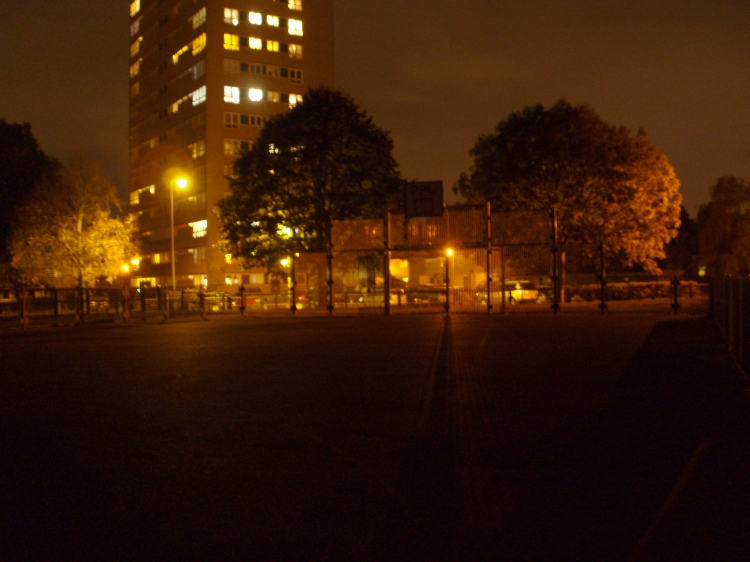This year, I laughed, I cried, I cursed (a lot). Much like the year before it, I’ve written this list to cast into light the bigger picture, as glorious as when the Dolby Digital thing starts in the cinema and you get sucked down into that crevice where 100 Moroccans spent six years carving each letter into the rockface. In terms of change, I finally got around to buying a new CD player this August, and it’s a joy to get home, shuffle into the slippers, and put on a album without worrying about iPod batteries, internet connections or getting electrocuted (that’ll teach me to take things apart). I’ve found this really does make a difference to how much I enjoy listening to music; maybe it was because I was playing MP3s (or AACs? Whatever) through a bass amp beforehand. But some things don’t change; I am still (fashionably?) late to the never–ending party that is the music world, with two out of twenty of my below choices being titles released this year, as I am still buying albums. I think part of my decision to continue ploughing this Luddite furrow is that without this financial boundary, I would probably end up downloading an album every day, and wouldn’t dig into each one the way I try to. To push this principle to its extreme, I think I’d rather listen to one album for the rest of my life than listen to thousand of albums only the one time each, but happily I don’t live in Room 101. On a final note, this list is in no particular order, so faakin’ shuttit.
Black Tusk, both Embrace The Madness and Tend No Wounds. Around once a month I put one of these on and remember how good they are/were. Fun and bare–toothed, lusting after life and blood at the same time with every instrument roaring.
Parkway Drive, Horizons. Generally speaking I don’t like this style of metal, as it tends to be adopted by bands attracted to its formulaic song structures and unimaginative riffs (I mean, Killswitch Engage have a best–of album in them from a 15 year career) but these guys write great riffs and songs. And metal on the beach? What an age we live in.
Megadeth, Rust In Peace. I had forgotten how fast and excellent their riffs are, how interesting their songwriting is, and the independence of the rhythm section. This album isn’t actually that heavy, but faster than a rat up a trouser leg. Pain Was The Cure? Goddamn, that’s a riff.
Slayer, South Of Heaven. Vicious, groovy, clattering, offensive.
YOB, Elaborations Of Carbon. New age doom, a brew of hippie’s thunder, all–seeing riffs in a world asunder.
Biffy Clyro, Live at T in The Park. This isn’t an official recording, I just saw a bit on TV, and watched it back on Youtube multiple times in the following weeks. Biffy Clyro have transitioned from being a bit weird to being a bit less weird, but still combine unusual touches with moments of euphoria. The video of the whole gig has been removed now, but the odd song is still listed, so faakin’ watch it.
Joy Division, Unknown Pleasures. I feel this is an unusual choice on my part, as it’s gloomy, not catchy and not heavy (OK, so two out of three are very usual), chilled out in a spare and withered way. See feature.
Ithaca, Narrow The Way. An excellent debut E.P mixing up metal, hardcore and dare I say it (feelin’ lucky, punk?) emo, of the Sikth and Weak Teeth variety. The songs smash along, helped by plenty of loud–to–quiet (and, of course, quiet–to–loud) moments, and an abundance of quality riffs, like 2.30 in Burial. Closing track Mercy is particularly propulsive, with some rather unexpected clean backing vocals bringing things to a climatic end; not bad for an EP only 18 minutes long. Download it here, and pay for it too, you thieving bastards.
The Pogues, If I Should Fall From Grace With God. And they certainly have. Excellent to get drunk and spoil parties to.
Rise Against, Appeal To Reason, Siren Song Of The Counter Culture and Endgame. Every time I hear a Rise Against album I am disappointed, and a week later I always wonder why. It takes a while for their quality to sink in, but I don’t know why; catchy riffs, engaging vocals and lyrics, excellent song writing, and a punk band that focus on principles over art.
Guns’n’Roses, Use Your Illusion II. A journey, through highs and lows, with swagger and sensitivity.
Death, both Individual Thought Patterns and The Sound Of Perseverance. Hearing Flesh and The Power It Holds for the first time was like One sighing out of the speakers for the first time again. I really enjoyed both of these on the train journey home after a day in front of a computer, because alongside being utterly vicious, the lyrics and songwriting are both deeply enlightened and enlightening.
Nails, Abandon All Life. Todd Jones is both insightful and controversial in everything he says (read the excellent Steel For Brains interview), and teeth–clenchingly hostile in his lyrics. Nails really do hate you, me, everyone else and quite possibly themselves. Take it personally.
Torche, Harmonicraft. Why do these guys not get played on the radio? Fun heavy metal, which, need I say it, is totally unique. Euphoric and pounding, this was another one I really enjoyed listening to on a packed train on the way home, when everyone defaults to being as miserable as possible. I am waiting for a suitably triumphant moment (or moments, I’m not adverse to that, so bring it on, life) to play Harmonicraft as loudly as possible.
Def Leppard, On Through The Night. I love a bit of NWOBHM, which is what this is; Leppard weren’t always so poppy. I mean, look at the front cover: that’s some cool space truckin. I love waking up to this, even at 6.45am in December!
Machine Head, Bloodstones & Diamonds. It is still sinking in, and I’m yet to grasp its nuances, the nuance of a broken neck, that is, but it’s good, I’ll tells yous that much.
2014 also bade farewell to the BBC Punk Show, Jay Adams and Jon Athon. It’s been emotional.

